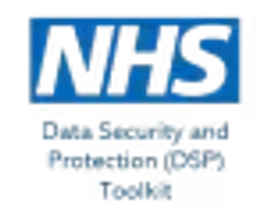Regulated and compliant with...


Appointments
30m
Lives covered
Regulated and compliant with...


Privacy notice | Cookie policy
© 2026 HealthHero Solutions Ltd., All rights reserved. Registered at 10 Upper Berkeley Street, London, W1H 7PE.
Receiving an ADHD diagnosis as an adult can bring clarity, validation and a better understanding of lifelong struggles. However, it may also come with many questions, emotions and uncertainty about what comes next.
This comprehensive guide will help you deeply understand ADHD, process your emotional responses and navigate practical steps for effective management.
Attention-Deficit/Hyperactivity Disorder (ADHD) is a neurodevelopmental condition affecting attention, impulse control, activity levels and emotional regulation. It's not a personality flaw or lack of discipline but a neurological difference that influences how your brain processes information, manages time and responds to stimulation.
ADHD involves an imbalance or dysregulation of neurotransmitters, such as dopamine and norepinephrine, impacting executive functions like planning, prioritising and decision-making.
Although often diagnosed in childhood, many adults are diagnosed later in life after years of experiencing unexplained challenges.
Adult ADHD symptoms often differ from those in childhood and can significantly impact daily life.
Typical symptoms include:
ADHD symptoms can manifest differently in men and women:
Getting diagnosed involves several steps:
Initial consultation: Discuss symptoms with your GP.
Referral: Referred to specialist ADHD services or mental health teams.
Assessment: Clinical interviews, questionnaires and possibly third-party feedback.
Diagnosis: Formal diagnosis with recommended treatment plans, which can include medication, therapy and coaching.
Clinics like HealthHero offer quicker assessments, typically within two weeks, with consultations costing around £200–£300. Private assessments involve detailed discussions, symptom evaluations, and personalised treatment recommendations.
Receiving your ADHD diagnosis can evoke various emotional responses:
It's natural to experience mixed emotions such as relief, sadness, frustration, or grief for years spent feeling misunderstood. Allow yourself to feel these emotions, recognising they are part of your journey toward greater self-awareness and acceptance. Consider journaling or speaking to a therapist about your feelings.
An ADHD diagnosis can profoundly change how you view yourself. You may now understand why certain tasks felt difficult or why you struggled with aspects of life others managed easily. This clarity can lead to increased self-compassion, self-acceptance and empowerment.
Discuss options like stimulants (methylphenidate, lisdexamfetamine) and non-stimulants (atomoxetine, guanfacine) with your healthcare provider. Medication can significantly improve focus, impulse control and emotional stability.
Cognitive Behavioural Therapy (CBT): Develop coping skills and strategies, such as breaking down tasks into manageable steps and reframing negative thoughts.
ADHD coaching: Personalised support to enhance productivity, organisation, self-management, goal setting and accountability.
Mindfulness and relaxation techniques: Techniques like meditation or deep breathing to manage stress, help emotional regulation and improve attention.
Simple daily changes can significantly improve symptom management:
Diet: Balanced nutrition rich in proteins, omega-3 fatty acids, whole grains, fruits and vegetables. Avoid excessive sugar and processed foods.
Exercise: Regular physical activity boosts dopamine levels, improving mood and reducing symptoms. Aim for 30 minutes daily.
Sleep: Establish consistent sleep routines, creating a calming bedtime ritual and limiting screen exposure before bedtime.
Effectively communicating your diagnosis can strengthen relationships.why not try the following?:
“My ADHD diagnosis explained so much of my life's confusion. Now, understanding my brain, I'm kinder to myself and more successful at work and home.” – Emma
“Getting diagnosed at 40 felt bittersweet. Initially grieving lost opportunities, I soon realised it opened doors to better strategies and personal growth.” – Mike
“Learning about my ADHD changed my marriage positively. Understanding how ADHD affected my behaviours allowed us to create healthier ways of communicating.” – Lisa
"After my diagnosis, accessing ADHD coaching transformed my productivity and confidence. I'm now doing well in a job I once thought impossible." – James
Your ADHD diagnosis is a label, sure, but also incredibly empowering. Understanding your ADHD provides opportunities to adapt and live authentically. Embrace the available support and use your newfound clarity to build a fulfilling and successful life.
How do I talk to family or friends about my diagnosis?
Start by clearly explaining ADHD, share reliable resource, and describe how it personally affects you.
Will my ADHD diagnosis impact employment opportunities?
No. Employers must provide reasonable adjustments under the Equality Act 2010, supporting you effectively in the workplace.
What practical accommodations can I request at work?
Flexible working hours, quieter workspaces, additional organisational tools or software and structured feedback are common accommodations.
Can I be diagnosed without childhood documentation?
Yes. Clinicians rely on your personal history and clinical assessments rather than strictly needing childhood documentation.
How can I manage stigma associated with ADHD?
Educate yourself and others, join support groups and seek professional advice to effectively cope with any stigma.
Does ADHD medication change my personality?
No. Medication aims to manage symptoms, enabling you to express your true potential clearly, rather than altering your fundamental personality.